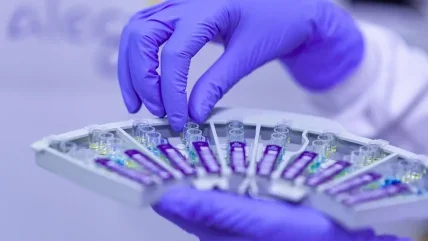
Biotech company Universal DX has started the clinical trial of its Signal-C colorectal cancer screening blood test with an aim to obtain US Food and Drug Administration (FDA) premarket approval.
Universal DX also announced the closing of its Series B funding round from existing investors like Quest Diagnostics, and new investors, including Olympus Innovation Ventures.
The clinical trial for Signal-C is currently underway, having recruited its first patient in January 2024.
The study is on track to meet its goal of enrolling at least 15,000 patients across 100 investigative sites.
In November 2023, Spain-based Universal DX and Quest Diagnostics announced a collaboration. This agreement granted Quest Diagnostics the rights to provide clinical laboratory services in the US, contingent on FDA approval of the test.
Quest Diagnostics operates an oncology centre of excellence in Lewisville, Texas, which will be the sole site for testing in the trial.
Universal DX will deliver assay results through its proprietary cloud solution. Upon FDA approval, both parties will work together to commercialise the test.
Universal DX chairman Juan Martinez-Barea said: “We are thrilled to announce the start of our FDA validation for Signal-C.
“After securing the funding required, and having operationally launched our collaboration with Quest, UDX is one step closer to reaching the market with a non-invasive, highly accurate blood test for screening for colorectal cancer.
“Early detection is crucial, and our technology has the potential to significantly reduce the mortality of this disease.”
Signal-C uses next-generation sequencing (NGS) and advanced bioinformatics to detect methylated DNA patterns and fragments released by colorectal cancer tumours into the bloodstream.
Universal DX said that the test has consistently shown high accuracy in studies. It demonstrated 93% sensitivity for colorectal cancer detection, and 54% sensitivity for detection of precancerous lesions at 92% specificity overall.
The company uses multi-omics, computational biology, and artificial intelligence (AI) to identify early cancer signals in cell-free DNA (cfDNA).
Its advanced assay technology for colorectal cancer screening can also be used for other high-burden cancers.
Separately, Quest Diagnostics introduced 13 new blood tests to identify micronutrient deficiencies.






